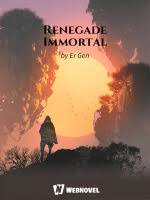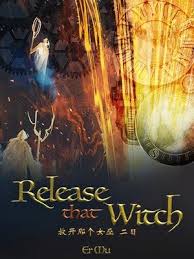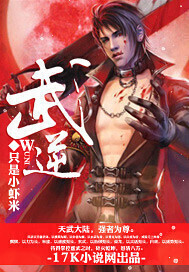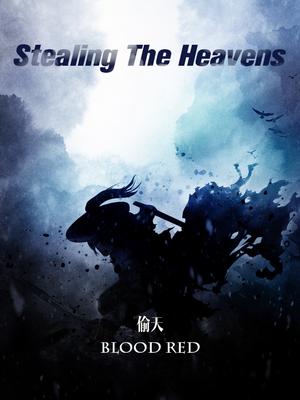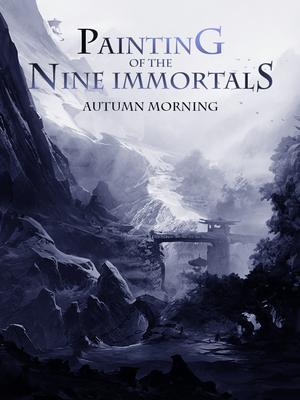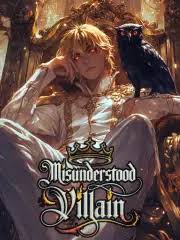The Story in 3 Sentences
Wang Lin begins as a mediocre-talent youth from a humble background, shunned by his relatives but cherished by his parents, who suddenly gains the chance to walk the path of immortality through a mysterious stone bead, only to discover the brutal reality of the cultivation world where the strong prey on the weak .
His path undergoes a dramatic transformation after experiencing multiple betrayals and tragedies, morphing from a naive, kind-hearted boy into a ruthless, scheming cultivator who understands that survival in this world requires not just power but profound wisdom and sometimes morally ambiguous decisions .
The narrative expands from personal survival into a cosmic struggle involving ancient gods, multiple realms, and profound philosophical questions about the nature of existence itself as Wang Lin defies heaven itself to carve his own path toward true immortality .
Why It Stands Out
1. The Philosophical Cultivator Journey
This novel distinguishes itself through its deep engagement with philosophical concepts and the genuine emotional weight of Wang Lin’s journey. Unlike many xianxia protagonists who seek power for its own sake, Wang Lin’s cultivation is deeply tied to his comprehension of life, death, and the fundamental nature of existence, making his advancement feel earned through profound personal growth rather than mere energy accumulation . The novel treats the path to immortality as a genuine metaphysical and philosophical struggle, with Wang Lin’s comprehension of these cosmic truths becoming as important as his combat abilities, creating a more intellectually satisfying progression system .
2. Moral Complexity and Anti-Hero Development
Renegade Immortal stands out for its unflinching portrayal of moral ambiguity and the realistic transformation of its protagonist. Wang Lin evolves from a naive youth into a morally gray anti-hero whose actions, while often ruthless, are presented as necessary adaptations to a brutally Darwinian world . This complex character development avoids simplistic hero/villain dichotomies, instead exploring how trauma, loss, and the relentless pressure of the cultivation world can fundamentally reshape a person’s morality and worldview, creating a protagonist who is both compelling and frequently unsettling .
3. Emotional Depth and Mortal Connection
The novel maintains a powerful connection to mortal experiences and emotions even as it explores cosmic-level conflicts. Unlike many xianxia stories that abandon earthly concerns early on, Renegade Immortal frequently returns to mortal perspectives and explores how cultivation distances practitioners from human experiences . This creates poignant contrasts between immortal power and human vulnerability, with Wang Lin’s occasional moments of melancholy and remembrance serving as powerful reminders of what he has sacrificed on his path to power, adding layers of emotional depth rare in the genre .
Characters That Leave a Mark
There’s Teng Huayuan – A primary antagonist whose relentless pursuit of Wang Lin creates much of the novel’s narrative momentum. His actions demonstrate the brutal logic of the cultivation world where eliminating potential threats takes precedence over morality, and his complex history with Wang Lin creates a vendetta that spans centuries and realms, showing how cultivator conflicts transcend mortal timescales .
You’ll meet Li Muwan, who becomes one of Wang Lin’s most significant romantic interests despite the novel’s generally underdeveloped romance subplots. Her relationship with Wang Lin showcases his capacity for connection amidst his generally ruthless demeanor, though their bond is often criticized by readers for feeling somewhat contrived in its development .
And Liu Mei? They’re the one who represents the complex and often contradictory nature of relationships in the cultivation world, serving as both love interest and antagonist at different points in the story. Her shifting allegiances and complicated history with Wang Lin illustrate how personal connections become entangled with ambition and survival in a world where power often supersedes emotional bonds .
The Flaws Fans Debate
The novel’s slow pacing in early chapters is frequently criticized, with many readers noting that it takes approximately 200 chapters for the story to hit its stride, which can be challenging for readers accustomed to more immediate gratification in xianxia narratives .
Many readers point to the underdeveloped and sometimes problematic romance subplots as a significant weakness, with relationships often feeling contrived or suddenly important to the protagonist’s “dao heart” without adequate emotional foundation .
The translation quality varies throughout the novel, with some chapters suffering from awkward phrasing and unclear cultural references that can occasionally hinder comprehension of the more subtle philosophical and political nuances .
Must-Experience Arcs
Ch. 1–200: The Mortal Foundation – This extensive foundational arc establishes Wang Lin’s origins, his entry into cultivation, and his initial transformations from naive youth to ruthless cultivator. It includes his experiences with the Heng Yue Sect, his first encounters with the stone bead’s powers, and the tragic events that fundamentally reshape his personality and approach to the cultivation world .
Ch. 500–700: The Ancient God’s Inheritance – A crucial progression arc where Wang Lin enters the Ancient God’s realm and gains profound powers and knowledge that elevate his cultivation to new heights. This arc expands the scope of the novel beyond earthly concerns to cosmic-level conflicts and mysteries, while also introducing key supporting characters and artifacts that remain important throughout the series .
Ch. 1500–1700: The Realm Consolidation – This late-game arc sees Wang Lin reaching unprecedented levels of power and confronting the ultimate truths of the cultivation world and the nature of the Great Dao itself. It represents the culmination of his philosophical and martial development, as he moves from being a participant in the system to someone who challenges and redefines the very rules of reality .
Killer Quotes
“In a tyrannical world, what is evil? What is benevolence? All living creatures are brutal.”
“The path to immortality was merely walking on the dark path to plunder various fortunes and robbing the threads of the profound heavenly secrets.”
“Treading the path of the Great Dao was lonely and filled only with one word ‘struggles’.”
Cultural Impact
Renegade Immortal has developed a dedicated following among xianxia readers who appreciate its more philosophical approach to cultivation, often being recommended in discussions seeking stories with emotional depth and complex character development rather than pure power fantasy .
The novel has inspired a successful donghua (animation) adaptation produced by Shanghai Foch Film, the studio behind other popular xianxia adaptations like Perfect World and Stellar Transformations, bringing the story to a wider audience through visual media .
It has sparked ongoing debates within reader communities about the balance between philosophical depth and traditional cultivation action, with some praising the sophisticated approach while others find the reduced combat focus less engaging, creating divided but passionate discussions about innovative storytelling in the genre .
Final Verdict
Start Here If You Want:
A xianxia novel that prioritizes philosophical depth and character development over pure power progression, featuring a protagonist whose emotional journey is as important as his martial advancement.
A cultivation story with genuine moral complexity and an anti-hero protagonist whose transformation from naive youth to ruthless cultivator feels earned through traumatic experiences rather than arbitrary personality shifts.
A narrative that maintains connection to mortal perspectives and emotions even as it explores cosmic-level conflicts and immortal powers, creating poignant contrasts between human vulnerability and cultivator prowess.
Study If You Love:
Narratives that explore profound philosophical questions about existence, morality, and the nature of power through the framework of cultivation, treating the path to immortality as a genuine metaphysical journey.
Complex character development where protagonists and antagonists operate in moral gray areas, with their actions motivated by comprehensible if sometimes disturbing logic based on their experiences and worldviews.
World-building that extends beyond combat capabilities and cultivation stages to include intricate philosophical systems and cosmic mysteries that challenge both the characters and readers to contemplate deeper truths.
Avoid If You Prefer:
Fast-paced action with frequent combat scenes and immediate power progression, as this novel emphasizes philosophical contemplation and character development over physical confrontations and may feel slow to readers seeking constant action.
Simple power fantasy narratives where the protagonist dominates through overwhelming combat strength or convenient plot devices, as Wang Lin’s victories come through strategic thinking, comprehension of profound truths, and sometimes morally questionable decisions.
Light-hearted or comedic takes on the cultivation genre, as the novel maintains a serious, often dark tone throughout its exploration of brutal cultivation world realities and philosophical depth, with little room for humor or casual storytelling.
